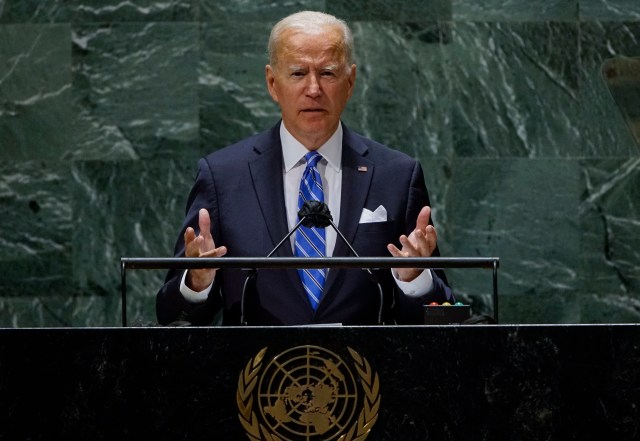
When it comes to foreign policy and national security in the Américas, the crisis on our southern border has rightly dominated the headlines.
By Washington Examiner – David Wilezol
Sep 24, 2021
But there’s another, less-recognized setback happening for the United States far south of the Rio Grande or the Sonora Desert: crumbling relationships with Latin American countries.
Given President Joe Biden’s campaign boasts that multilateralism was coming back, one might have expected him to jump on a great opportunity. Namely, that which the supposedly isolationist Trump administration secured with our neighbors: the right of the U.S. to host the next Summit of the Américas conference. It’s an important gathering that only happens once every three years. Sadly, there is currently no date set on the calendar, no venue, no agenda, and virtually no multilateral negotiations toward any of it.
According to my sources, the State Department’s summit coordinator resigned in frustration in August. On the bilateral front, Colombia has been the U.S.’s closest ally in the region for a generation. Yet, Biden refused to speak with Colombian President Iván Duque for nearly six months. The call finally happened in June, but only when Duque and his team nearly died after rebels fired on his presidential helicopter near the Venezuelan border. Why the delay?
The White House is reportedly unhappy with the actions of Colombian police in dealing with protests this year, despite Duque pledging to hold accountable any security forces who have engaged in excesses. Nor has Biden called the democratically elected leader of the largest democracy in Latin América: Brazil.
Instead, Brazil had to settle for a lecture on climate from national security adviser Jake Sullivan during his visit in August. Special Presidential Envoy John Kerry, who has achieved nothing binding in his mission of getting the Chinese to get serious about climate action, no doubt lectured the Brazilians during his meeting in July. Never mind that Brazil has never been a top emitter of greenhouse gases and already gets 45% of its energy from renewable sources – making its energy sector one of the least-carbon heavy on Earth.
White House officials didn’t meet with El Salvadorian president Nayib Bukele on his February trip to Washington, D.C. Bukele has still not received a call from the president or the vice president, even though Kamala Harris’s portfolio includes addressing root causes of migration from El Salvador. Instead, the Biden administration has sanctioned officials around Bukele, criticized his government, and tried to dictate the composition of the country’s judiciary branch.
It’s true that Bukele has undermined democracy in some key ways. But if Biden snubbed him on the basis of not respecting democracy, then why did the president meet with President Erdogan of Turkey or Vladimir Putin?
Then there’s Cuba. When Cubans recently rallied for freedom in the streets, the Biden team’s toughest response was to sanction Cuban officials who were already sanctioned. It was a signal to the regime of where Biden’s Cuba policy is likely to go.
…
Read More: Washington Examiner – Biden is losing Latin América
…

